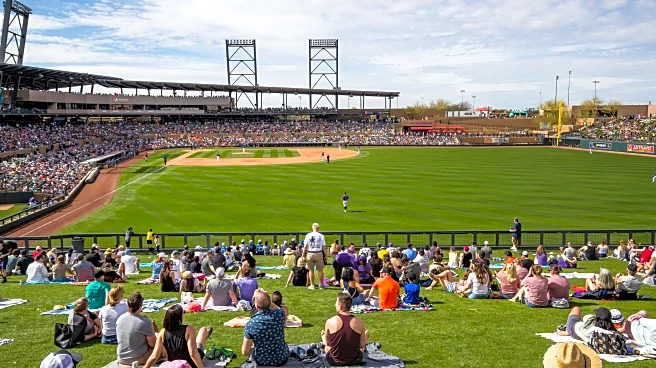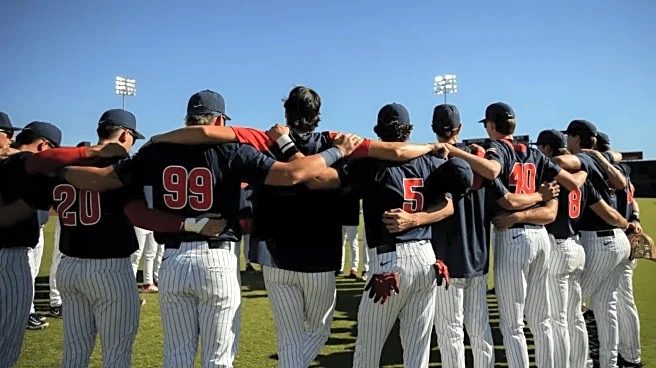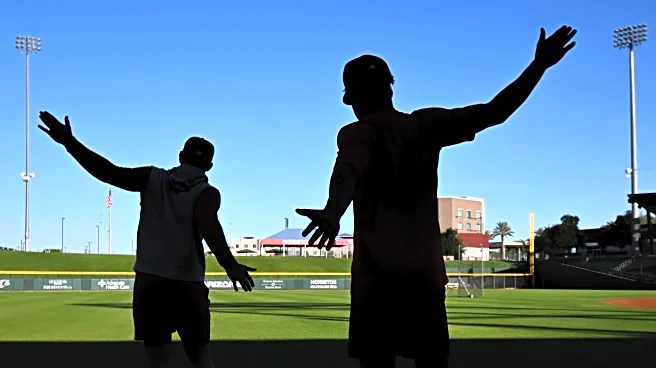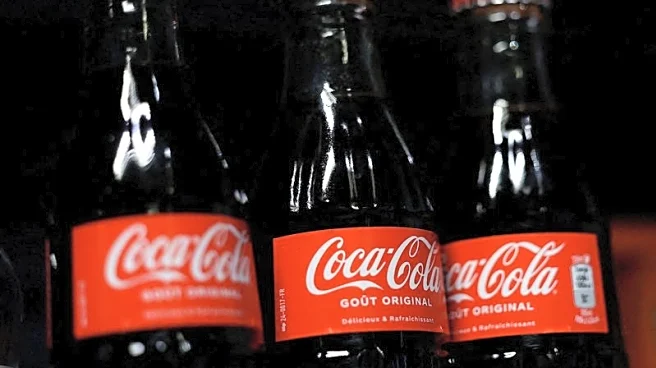What's Happening?
The Philadelphia Phillies have been eliminated from the MLB playoffs following a loss to the Los Angeles Dodgers in the National League Division Series. The defeat was marked by critical errors, including Orion Kerkering's throwing mistake, which contributed to the team's elimination. Despite having a roster filled with star players like Bryce Harper and Kyle Schwarber, the Phillies have struggled in recent postseason appearances, with a record of 3-10 in their last 13 playoff games. The team's batting performance has been notably poor, with key players hitting below .200 during the series. As the Phillies face the offseason, they confront significant challenges, including the potential departure of free agents and the aging of their core players.
Why It's Important?
The Phillies' playoff exit raises questions about the sustainability of their current roster and strategy. With key players like Schwarber and Realmuto potentially leaving, and others like Zack Wheeler recovering from surgery, the team faces a critical juncture. The Phillies have maintained a high payroll, but the aging roster and recent performance issues suggest that changes may be necessary to remain competitive. The team's future decisions will impact their ability to contend in upcoming seasons, affecting fans, the franchise's financial commitments, and the broader MLB landscape.
What's Next?
The Phillies must decide on their approach for the 2026 season, including whether to retain free agents and how to address the aging roster. The team may explore integrating younger prospects into the lineup to rejuvenate their performance. Additionally, management decisions, such as the future of manager Rob Thomson, could influence the team's direction. The Phillies' owner, John Middleton, is expected to continue investing in the team, aiming for a championship. However, the organization must balance financial commitments with the need for strategic changes to avoid repeating past mistakes.
Beyond the Headlines
The Phillies' situation highlights broader issues in professional sports, such as the risks of relying on aging players and the challenges of maintaining competitiveness with a high payroll. The team's decisions could set a precedent for other franchises facing similar dilemmas. Additionally, the emotional connection between players like Harper and the Philadelphia fanbase underscores the cultural significance of sports teams in their communities, influencing public sentiment and support.











